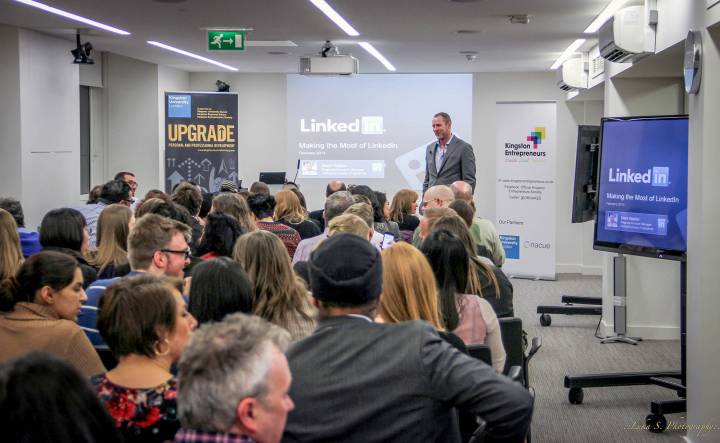Faculty of Science, Engineering and Computing Inaugural Lectures

This event has taken place
View all upcoming events at Kingston University.
Time: 3.00pm - 5.30pm
Venue: Clattern Lecture Theatre, Penrhyn Road campus, Penrhyn Road, Kingston upon Thames, Surrey KT1 2EE
Price:
free

Kingston University welcomes three newly-appointed Professors to the Faculty of Science, Engineering and Computing. Join us as we celebrate their success with a twilight session of inaugural lectures in our beautiful Clattern Lecture Theatre, followed by a reception with drinks and refreshments in The Picton Room.
THE LECTURES
Making Measurements on Images of the Retina - Professor Sarah Barman
Your retina, on the back of your eye, is like a window to your cardiovascular system. In the future, it might be possible to assess your risk having a heart attack or stroke simply by having an eye exam. To be able to achieve this we first need to measure features on the images of retinas taken from a very large group of people so that we can understand the association between retinal blood vessel shape and cardiovascular health.
This lecture will discuss the efforts of, and the challenges facing, the retinal image analysis team at Kingston University to develop software capable of making millions of very accurate and reliable measurements on thousands of images. The work, in collaboration with clinicians at St George's, includes the use of data from the UK Biobank repository. The national resource of the UK Biobank is the world's largest multimodal medical imaging study and contains over 100,000 retinal images.
Using Uncertainty - Professor James Orwell
In Computer Science, the term 'uncertainty' is used to describe various concepts, which can be used in interesting and exciting ways. This lecture investigates a couple of examples and thereby gives the opportunity to survey some recent developments in the field.
One example is in the evaluation of signal processing algorithms. In the security domain, some typical examples include face, speaker and speech recognition, and the detection of 'intruder' events. There are currently many ways of measuring the performance of these algorithms, which makes comparisons between problems, methods and datasets unnecessarily difficult. This also hinders an intuitive understanding of algorithm performance. In short, signal processing is currently not well served by its performance metrics. However, the concept of uncertainty, as provided by Information Theory, can provide both the guiding principle and the working details for an approach that allows straightforward comparisons and provides an intuitive grasp.
Another example is in the description of information sharing systems. The internet has enabled many different types of network, such as social networks and security networks. These have resulted in information sharing on an unprecedented scale, between individuals, companies and states. Uncertainty as 'lack of information' can be used in a system architecture to embed socially useful principals. Hence, the design of devices and networks for public and private surveillance can be designed accordingly.
Beyond the Cloud: Towards Ultra Scale Computing - Professor Souheil Khaddaj
Although many of the fundamentals of concurrency theory underlying distributed computing have not changed since its early days, the scale and the range of distributed applications continue to grow almost exponentially. Recently, this has been supported by the development of multi-core architectures and service orientation in the form of Cloud Computing, which meant that parallelism is materialised in every device ranging from mobile phones to massive data centres. However, grand challenge problems now also include many complex enterprise applications, big data, smart city management etc. which require even higher level of infrastructure scalability i.e. Ultra Scale Computing. But, the growth of Exascale and Zettascale infrastructures poses new challenges such as sustainability and stability, and the development of new paradigms for software construction.
This talk will start with an overview of parallel and distributed computing including parallelisation strategies, load distributions and optimisation. It will examine some traditional scientific as well as recent enterprise applications. The talk will also elaborate on some aspects of service orientation and quality of service requirements. Finally, it will conclude by presenting the inevitability and challenges of Ultra Scale Computing.
Booking is essential to attend this event.
For further information about this event:
Contact: Leah Holmes, Faculty of Science, Engineering and Computing
Email: leah.holmes@kingston.ac.uk
Directions
Directions to Clattern Lecture Theatre, Penrhyn Road campus, Penrhyn Road, Kingston upon Thames, Surrey KT1 2EE:

Filter events
For further information
Leah Holmes, Faculty of Science, Engineering and Computing
Email us